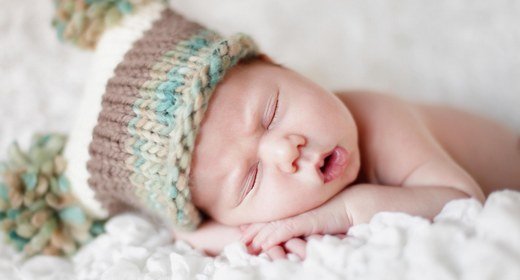The sleep habits of babies vary depending on their age and developmental stage. Here’s an overview of typical sleep patterns and habits observed in babies:
- Newborns (0-3 months):
- Newborn babies sleep for short periods, usually around 14-17 hours a day, often in irregular intervals.
- They typically sleep for 2-4 hours at a time, waking up frequently for feeding, diaper changes, and comfort.
- Newborns have a tendency to fall asleep easily during or after feeding sessions.
- Infants (3-6 months):
- By around 3 months, babies begin to develop a more structured sleep pattern, with longer periods of sleep at night and shorter naps during the day.
- Most babies in this age range sleep for about 12-15 hours per day, with nighttime sleep lasting around 8-10 hours, often interrupted by one or two nighttime feedings.
- Daytime naps may range from 3-5 naps per day, lasting anywhere from 30 minutes to 2 hours each.
- Babies may start to develop sleep associations, such as needing a pacifier or being rocked to sleep.

- Older infants (6-12 months):
- Babies in this age range typically sleep for about 12-14 hours per day, including nighttime sleep and 2-3 naps during the day.
- Nighttime sleep may become more consolidated, with fewer nighttime awakenings for feeding.
- Babies may start to sleep longer stretches at night, ranging from 6-8 hours, though some may still wake up once or twice for feedings.
- Daytime naps may gradually decrease to 2-3 naps per day, with each nap lasting 1-2 hours.
- Toddlers (12-24 months):
- Toddlers usually sleep for about 11-14 hours per day, including nighttime sleep and one or two daytime naps.
- Nighttime sleep tends to become more consistent, with most toddlers sleeping through the night without waking up.
- Daytime naps may transition to one longer nap, typically lasting 1-2 hours, although some toddlers may continue to take two shorter naps for a while.
- Preschoolers (2-5 years):
- Preschool-aged children typically need 10-13 hours of sleep per day, including nighttime sleep and one nap, although some children may stop napping altogether.
- Nighttime sleep becomes more stable, with children sleeping through the night without waking up regularly.
It’s important to note that every baby is different, and individual sleep patterns may vary. Additionally, factors such as temperament, environment, and parental routines can influence a baby’s sleep habits. Establishing a consistent bedtime routine and creating a sleep-friendly environment can help promote healthy sleep habits in babies.
Visited 18 times, 1 visit(s) today

